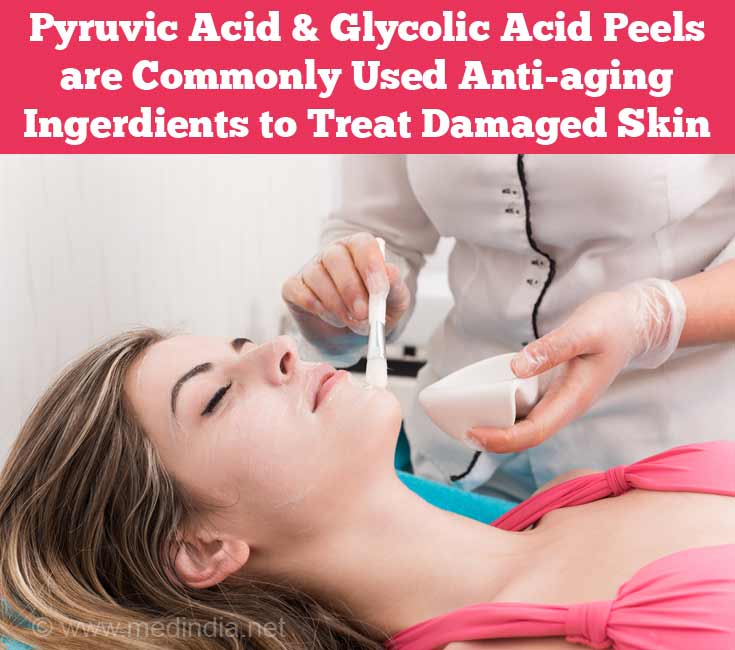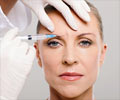- Ganceviciene R, Liakou AI, Theodoridis A, et al. Skin anti-aging strategies. Dermatoendocrinol. 2012 Jul 1; 4(3): 308-319
- Rhein LD. Aging skin-general considerations. In: Rhein LD, Fluhr JW, Ed. Aging Skin: Current and Future Therapeutic Strategies. Allured Books, 2010; 1.
- Aging changes in skin - (http://www.nlm.nih.gov/medlineplus/ency/article/004014.htm)
- Hughes MC1, Williams GM. Sunscreen and prevention of skin aging: a randomized trial. Ann Intern Med. 2013; 158(11):781-790.
- Latha MS. Sunscreening Agents. A Review. J Clin Aesthet Dermatol. 2013; 6(1): 16-26.
- Borut Poljšak, Raja Dahmane. Free Radicals and Extrinsic Skin Aging. Dermatol Res Pract. 2012; 2012: 135206.
- Rinnerthaler M, Bischof J . Oxidative Stress in Aging Human Skin. Biomolecules. 2015; 5(2): 545-589.
- Schagen SK . Topical Peptide Treatments with Effective Anti-Aging Results. Cosmetics 2017, 4, 16;
- Varela-López A. Coenzyme Q and Its Role in the Dietary Therapy against Aging. Molecules 2016, 21, 373;
- Prahl S1, Kueper T, Biernoth T, etal. Aging skin is functionally anaerobic: importance of coenzyme Q10 for anti aging skin care. Biofactors. 2008;32(1-4):245-255.
- M. Giesen, T. Welß Coenzyme Q10 has anti-aging effects on human hair. IFSCC Magazine, 11 (2008) (1) 37-42.
- S. Prahla,b, T. Kuepera. Aging skin is functionally anaerobic: Importance of coenzyme Q10 for anti aging skin care. BioFactors 32 (2008) 245-255.
- Coderch L1, López O, de la Maza A. Ceramides and skin function. Am J Clin Dermatol. 2003;4(2):107-129.
- Guillou S, Ghabri S, Jannot C, et al. The moisturizing effect of a wheat extract food supplement on women's skin: a randomized, double-blind placebo-controlled trial. Int J Cosmet Sci. 2011; 33(2):138-143.
- Le Louarn C1. [Botulinum toxin and the Face Recurve concept: decreasing resting tone and muscular regeneration]. Ann Chir Plast Esthet. 2007; 52(3):165-176.
- Ghersetich I, Brazzini B, Peris K. Pyruvic acid peels for the treatment of photoaging. Dermatol Surg. 2004; 30(1):32-6; discussion 36.
- Funasaka Y, Sato H, Usuki A. The efficacy of glycolic acid for treating wrinkles: analysis using newly developed facial imaging systems equipped with fluorescent illumination. J Dermatol Sci. 2001; 27 Suppl 1:S53-59.
- Chemical peels in aesthetic dermatology: an update 2009 TC Fischer, JEADV 2010, 24, 281-292.
Introduction to Anti-aging Ingredients
Who doesn’t want to keep skin youthful and glowing forever? The market is flooded with anti-aging products promising preventive and corrective offers to fight the aging factor. So, how does anti-aging skin care work? How do I know which one works for my skin? A basic understanding of proven age-reducing ingredients will be the first step in choosing an anti-aging skincare plan that works for you.
Anti-aging ingredients like retinol, vitamin C, polypeptides, and Coenzyme Q10 are being used increasingly by people who worry about aging and its prominent signs. Aging is a natural phenomenon and an intrinsic part of life, however many do not want to accept it. Most women find it difficult to accept that they are getting older and have to deal with the problems of aging, such as wrinkles, sagging, dryness, and thinning of skin. Although, it is not possible to completely reverse the aging phenomenon, its signs can be prevented or delayed using some anti-aging ingredients.
What Happens During Skin Aging?
The skin is made up of three basic layers. The outermost epidermis contains sensory nerves that are sensitive to temperature, and melanocytes that produce the pigment melanin. The dermis contains hair follicles, the glands producing sebum, and blood capillaries. The innermost fat layer contains fat cells that are held together by fibrous tissue.
As we age the outer epidermis gets thinner and the number of pigment producing melanocytes starts to decrease. This causes the skin to appear pale and clear. The sebaceous glands secrete lesser natural oil and so the skin appears dry. The skin starts to sag as the collagen fibers lose their strength. This also causes the wrinkles to appear.
What is Anti-aging Treatment?
The main objective of anti-aging treatment is to interfere in the normal human biological aging process, as well as prevent or correct the signs of skin aging. Experts have divided anti-aging treatment/prevention strategies into three general groups.
- Primary anti-aging preventing measures: Anti-aging ingredients that can reduce risk factors before the signs of aging appear fall into this category. It includes topical sunscreen agents that absorb or block the UV light and prevent damage to the skin.
- Secondary anti-aging treatments: These use anti-aging ingredients that interfere with mechanism of aging. Treatments include retinoic acid, antioxidant vitamins, vitamin C, and Coenzyme Q.
- Tertiary anti-aging treatment: Anti-aging ingredients are used to treat the existing damage to the skin and are generally administered by professional dermatologists. Botulinum toxins (BOTOX), chemical peels, and laser therapies fall in this category.
Popular Anti-aging Ingredients
Skin is a reflection of your internal health. People with healthy, glowing and younger looking skin often appear confident. On the other hand, people with dull and aging skin tend to have low self-esteem. Since the health of skin is considered as an indication of overall well-being, several anti-aging treatments have been developed to reduce the aging signs such as wrinkles, fine lines, sagging and dryness of skin. Here is a list of popular anti-aging treatments that are used worldwide.
1. Sunscreen Agents with High Sun Protection Factor (SPF)
Exposure to Ultra Violet (UV) radiation is considered as one of the major reasons for skin damage that speeds up the aging and shows signs such as wrinkles, dryness and sagging of skin. According to experts nearly 80% of skin damage is caused by sun exposure. Therefore, the most important anti-aging strategy is to avoid over-exposure to sun and use sunscreens with high SPF. Sunscreen lotions or creams usually contain titanium dioxide (TiO2), kaolin, talc, zinc oxide (ZnO), calcium carbonate, and magnesium oxide. The newer sunscreens with SPF greater than 30 contain bemotrizinol, avobenzone, bisoctrizole, benzophenone-3 (BZ-3, oxybenzone), and octocrylene. These sunscreens give protection against broad UV range and thus show anti-aging effects.
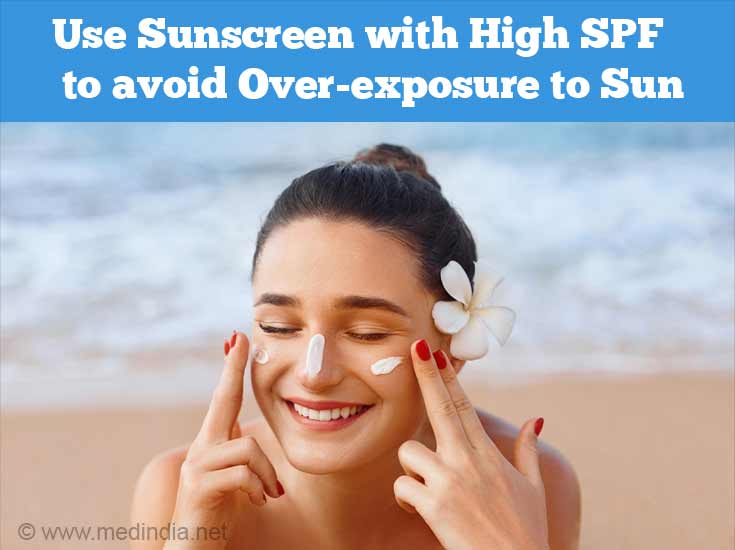
2. Antioxidants and Vitamins
Free radicals produced by endogenous metabolic process or those received from environmental pollutants or UV exposure constantly damage the healthy cells in the skin and hasten the aging process. The antioxidants that fight the free radicals are important anti-aging ingredients. Studies have demonstrated that antioxidants, such as alpha hydroxy acids, vitamins B3 (niacinamide), vitamin C, and vitamin E can reduce skin wrinkles and improve skin texture. A special combination of several anti-oxidants consisting of resveratrol, baicalin, and vitamin E are reported to be effective in treating aged and photodamaged skin. Retinol (vitamin A) is the most popular anti-aging ingredient that stimulates the production of collagen and prevents sagging of skin.
3. Coenzyme Q
Coenzyme Q is present naturally in the cellular mitochondria of humans, plants, as well as animals. It is a well-known anti-aging ingredient due to its antioxidant activity. Since mitochondria have a close relationship with the aging process. Coenzyme Q finds a special place in anti-aging treatments. Endogenously, it is known to prevent the oxidation of lipids & proteins and also acts as a free radical scavenger. The anti-aging effects of Coenzyme Q are not limited only to skin; it is also reported to show anti-aging effects on healthy hair through activation of specific keratins.
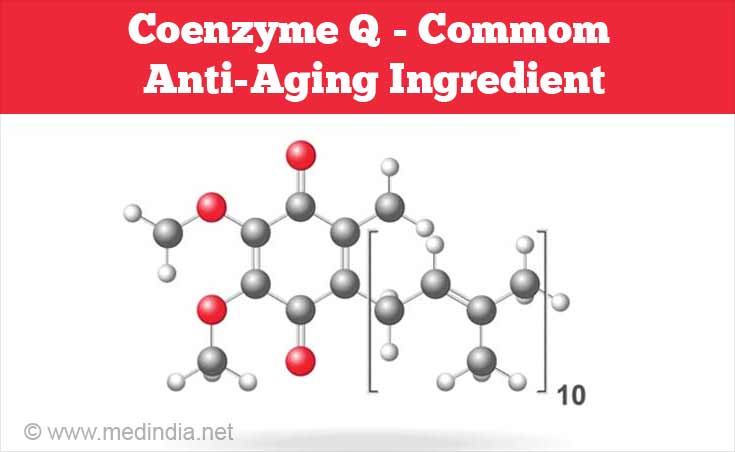
4. Polypeptides
Polypeptides are the cell regulators that act directly on the collagen metabolism. Polypeptides or oligopeptides are made up of amino acids and can imitate a peptide sequence present in collagen or elastin. Therefore, application of polypeptides or oligopeptides as anti-aging treatment can stimulate synthesis of collagen and elastin fibers to improve elasticity and strength of aging skin. Polypeptides such as palmitoyl pentapeptide-4 and carnosine are well researched anti-aging ingredients. Overall, polypeptide and their combinations present very effective anti-aging ingredients that show progressive effects on wrinkles, firmness, elasticity and sagging of aging skin.
5. Botulinum Toxin (BOTOX) Type A
Botulinum toxin type A, commonly known as BOTOX is the most popular anti-aging cosmetic used worldwide. BTX-A is a potent botulinum toxin produced by the bacteria Clostridia botulinum. Upon injecting into the skin, it blocks the release of acetylcholine, thereby preventing muscle contraction. BTX-A can thus reduce wrinkles or fine lines on the facial skin that make one look older. Botulinum is usually recommended for treatment of wrinkles in people aged between 40 and 60 years as their facial wrinkles are primarily caused by repeated, muscle contraction over time. In people above 65 years this anti-aging treatment may not be very effective.
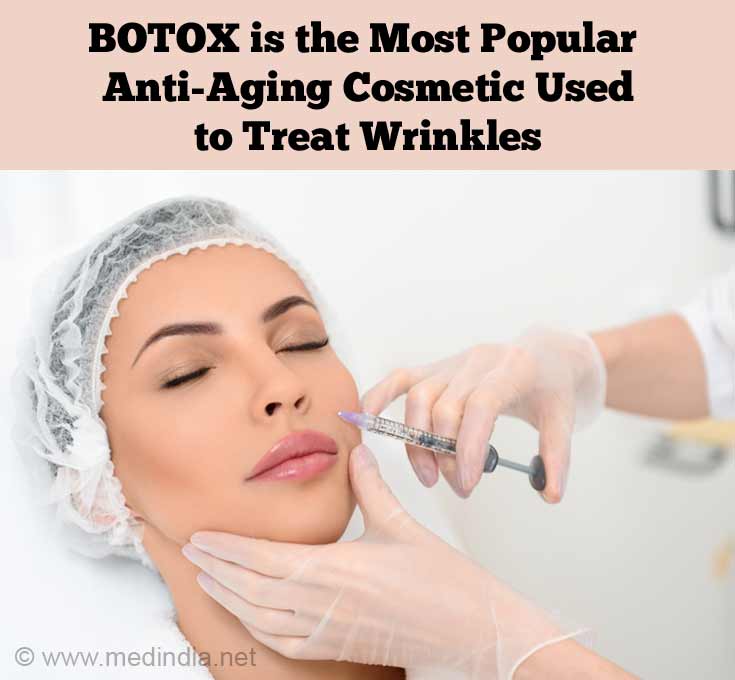
6. Ceramide
Ceramides are the lipid substances present in stratum corneum part of epidermis. Ceramides play an important role in maintaining the water permeability and barrier function of the skin. Since aging skin shows increased loss of water, the anti-aging formulations containing ceramide supplementation can improve the health of skin by improving the moisture retention. Ceramides are present in foods such as wheat, rice, vegetables and can be extracted from these sources to be included in anti-aging products. Ceramide-based anti-aging treatments can replenish and repair skin by forming a protective barrier.
7. Chemical Peels
Chemical peeling is becoming increasingly popular as anti-aging treatment because it can improve damaged skin and fine wrinkles. Based on severity of wrinkles, an expert dermatologist can choose from superficial, medium-depth or deep peels. Pyruvic acid and glycolic acid peels are used commonly as anti-aging ingredients to treat photo-damaged skin with wrinkles.
